Review for Night Raid 1931 Collection
Introduction
A little light of joy switches on in my mind. With all the anime that comes through Reviewer Towers, there is the danger of it all blurring into a morass of uniformity, a lack of originality exacerbated by the fact that in all likelihood it’s already been streamed online, and the only new things to discover on a disc are the textless credit sequences. But once in a while, I get hold of something genuinely new to me, and something I have been truly looking forward to. Night Raid 1931 is one such title, a constant resident in my mental notebook ever since I read a few favourable comments about it online.
It’s not your normal anime show. It’s a little more grown up, and even courts controversy at times. After all, it’s set in pre-second world war, Japanese occupied China, a period of history which still serves as a red rag to a bull in the area today. It’s about spies, with super-powers. Think about it, 1930s setting, spies, superpowers, political machinations in a period of decadence and depression. This might just be the anime equivalent of Indiana Jones. Night Raid 1931 has the proverbial foot in the door with me already. I start watching this show, not daring it to entertain me, but hoping that it doesn’t screw it up. And that’s before I’ve even seen a single episode.
1931, South East Asia, and the city of Shanghai has become the world in microcosm, where East meets West, and where old clashes with new. It’s also where the world’s powers jockey for position in a cold war that’s always on the verge of turning hot. Spies and secret agents frequent the town, and information is big business for all the nations. Japan’s Sakurai Agency may have a head start in the spy game, as its agents have special abilities beyond just a simple licence to kill. Yukina Sonogi can read minds, communicate telepathically, and with the right stimulus, pick up traces of memories from inanimate objects. Her right hand man Natsume Kagiya has exceptional vision, able to see through solid objects. The happy-go-lucky Aoi Miyoshi has telekinetic powers, for a brief period of time. While the more downbeat Kazura Iha has the ability to teleport. You’d think that they’d have the advantage in any form of espionage, but it turns out that they aren’t alone in having special abilities. Meanwhile Yukina has an ulterior motive in joining the agency. She’s looking for her brother Isao Takachiho, missing these past few years in Manchuria. But she may not like what she finds.
The 16 episodes of Night Raid 1931 are presented across three discs from MVM thus...
Disc 1
0. The Shipboard Shoots Conclusion
1. The Rescue
2. Rondo of Retrospection
3. Shadows Fall on the Big Four
4. Cameras, Dumplings and Stray Cats
Disc 2
5. Negative of Summer
6. An Ominous Night
7. The Incident
7.5 Demon of the Opium Den
8. In the Country of the Frozen Earth
Disc 3
9. The New Capital
10. East is East
11. Hunt in the Dark
12. Night Raid
13. At Least a Fragment of Hope
14. Panther Atop the Snow
Picture
Night Raid 1931 gets a 1.78:1 anamorphic transfer on these NTSC discs. The image quality is adequate, clear, sharp and colourful throughout, offering much in the way of detail and atmosphere. However, compression artefacts are apparent around fast motion, particularly the opening credits, and there is a degree of haloing visible around outlines, particularly when scaled up to an HD panel. Ironically, Night Raid 1931 looks at its best on an old CRT screen.
It’s a very appealing and atmospheric show, with character designs that tend towards the more realistic and ‘human’ end of the spectrum. No giant eyes and deformed cuteness here in what is a period action drama. There’s also a fair bit of effort put into bringing across the feel of the inter-war years, in terms of architecture, technology, vehicles and costumes, and there is a sense of authenticity given the level of detail and research that has gone into making this show.
Sound
You have the choice between DD 2.0 English and Japanese, with optional subtitles and signs. This being a Siren disc, the default is Japanese with subtitles. It’s a good choice, as I tried a bit of Sentai’s dub, and while it’s better than the usual Sentai effort, it is far too stilted and awkward to feel natural for the characters. The Japanese audio is better, certainly for the Japanese dialogue, but in an effort to show the cosmopolitan feel of Shanghai in this period, they have the Chinese characters speaking Mandarin, the Europeans speaking English, German, and Russian, and there are a fair few other tongues as well. Some of the non-Japanese dialogue sounds adequate, but most of it is pretty poor, with little in the way of acting going on. All of it is subtitled in English though, with non-Japanese bracketed by carets. Night Raid does benefit from some evocative music though, and its score really does reflect the setting of the story.
The subtitles are free of typographical error for the most part, but this being an early Sentai effort (and apparently not corrected by Siren in their localisation), there are far too many subtitle captions that flash on screen for a single frame, requiring some deft skipping and pausing work on the remote to capture what is said. A list follows...
Episode 1 – 19:47, 25:49
Episode 4 – 19:24, 22:28
Episode 6 – 20:50
Bonus Episode – 19:02, 20:51
Episode 9 – 17:21, 22:27, 23:22
Extras
All three discs present their content with static menus and are authored by Siren Visual in Australia, although given their NTSC format; it’s odd that they didn’t simply repackage the Sentai discs. Regardless, you won’t find any Sentai trailers on here.
You will find the textless end sequences, three in total on disc 2, although they aren’t chaptered, and simply play as one 4½ minute reel.
You’ll also find a bonus episode: The Prophecy, which runs to just under 24 minutes. For a short run show, it’s replete with what look like bonus episodes, episodes 0, 7.5 and 14 seeming to step outside of the main run. The Prophecy however is a genuinely superfluous episode, the infamous anime recap that usually gets slotted in halfway through the run to save on animator wear and tear. This summarises the story up to episode 7, and is narrated by the Prophetess. It’s actually a little useful too, as the way the series unfolds is that the viewer is thrown into the deep end, and has to catch little snippets of information as the story unfolds, regarding the characters, their pasts, and the natures of their abilities. The Prophecy actually takes the work out of that process, offering character bios that effortlessly fill you in. This is presented with Japanese audio only. Interestingly the non-Japanese dialogue that you hear in the main series is recorded in Japanese here.
Technically, episodes 0, 7.5 and 14 are bonus episodes as well, but they are presented as part of the series run on these discs.
Conclusion
Disappointment stings the most when expectations are highest, and I had high expectations indeed for Night Raid 1931. It’s such a rich period of history, and a period which is rarely explored in Western entertainment. It’s the pre-war period, the various colonies are beginning to shrug off the chains of Imperial domination, China’s in the middle of social upheaval, with its own Imperial dynasty fading away in the rising light of the competing forces of Nationalism and Communism, while Japan, looking to get a piece of the colonial power pie that it’s long since seen the Western powers benefit from has stuck its oar into places like Shanghai and Manchuria, and pre-Communism, with China wide open, places like Shanghai are cosmopolitan melting pots where all of the world’s major powers have an interest. It’s a scene poised with possibility, a rich narrative to take advantage of, that last gasp of decadence before the world slipped into war. I was hoping for so much from Night Raid 1931, with its tale of espionage and secret agents with psychic abilities. At the very least this ought to have been a pre-war Darker Than Black. Instead Night Raid 1931 is dull, lifeless, uninspired, and a waste of a decent premise, in the end delivering cliché and platitudes.
The first four episodes do start off on the right foot, with a pre-series special episode introducing the characters and showing their first meeting after being recruited into the Sakurai Agency, solving a people trafficking incident on the cruise liner on the way to Shanghai from Japan. You get some idea of the characters, their abilities, and they way that they relate to each other before the series proper kicks off. You get some idea of the politics and the complexity of the region as the first few stories unfold, and you do get some of the background of the characters. There’s a kidnapping that isn’t exactly what it appears, a Russian Jew who escaped the pogroms to Germany, where he wound up facing the same persecution, only this time blackmailed because of his musical talents to doing the state’s bidding, conceiving of a creative way to convey stolen information. Then the show introduces its main villain, who also happens to be the older brother of one of the main characters, as bomb threats paralyse Shanghai. It’s all good, interesting, and enjoyable if slow paced stuff, a lot like the show that I was hoping for.
Then episode 4 happens, an episode where a cat steals some undeveloped photographs, and the run time is devoted to these super-powered secret agents chasing down this cat to retrieve them. Right! It’s a daft, waste of an episode, beyond juvenile and genuinely childish, and it also exposes the flaws in the series as a whole. Night Raid 1931 fails to capitalise on its story, it may have courted controversy in Japan, with one episode not even being broadcast, but it’s really a paper thin recitation of history which fails to inform and excite. You get this rich tapestry of conflicts and interests in the region, but the show never looks beyond the surface. Japan wants to increase its power in the region. Why? The colonies want to throw off their oppressors. Why? The Communists and the Nationalists are opposing forces in China. Why? The series resolutely fails to answer any of these questions, and as such, there’s no hook to grab you with, very little investment in the series for the viewer.
It also fails to comment on the situation in 1930s Asia in any but the broadest of terms, and it’s painfully obvious that it avoids controversy by creating a wholly original antagonist for the show, rather than use any of the real world politics that was happening at the time as inspiration. We get in Isao Takachiho an idealist villain who wants freedom for oppressed people and who’s willing to use violence to achieve his ends. His idea is to make use of a weapon so powerful that the major powers will have to give into his demands, withdraw from the colonies, and the weapon will serve as deterrent for any other war in the future. You guessed it. In true espionage story style, the main deus ex machina is a nuclear bomb.
It’s juvenile plotting of villainy, and it’s matched by juvenile characterisations too. The main cast, thrust into the Shanghai underworld, doing their shadowy overseers’ bidding in keeping hold of their nebulous balance of power are more concerned respectively with their missing brother, their dead girlfriend, or their military upbringing. Far too often in this series, the plot dictates the characters, which makes the twists and unexpected revelations seem contrived and cheap. Also the pacing is off, with a fair bit of time devoted to the trivial and inconsequential, while the imbalance makes the action sequences seem tame, the main story lacking in drama, and just as in Hakuoki, the tendency to narrate away major historical developments detaches the viewer from the show. By the time the big finale rolled around, nuclear bomb ticking away to global destruction or its equivalent, the show was about as thrilling as strawberry mousse.
Night Raid 1931 turned out to be quite the disappointment. It is watchable in a way, and the lower your expectations, the more enjoyable it becomes. It feels like just another disposable anime, with yet another set of identikit, easily categorised character archetypes. It’s just the kind of show that you can happily have on in the background. If you want more exciting spy antics, 009-1 or even Najica Blitz Tactics would suffice, although you’d have to go a long way to beat the aforementioned Darker than Black. Add to that this release’s subtitle problems, the flashing subs which you have to spend far too much time fiddling with the remote to read, breaking up the flow of an episode. This was one of the first Sentai releases, back when QC was an optional extra, but from what I read, Sentai are still up to this nonsense with their most recent release of Patlabor on Blu-ray. I just wish that somewhere on the way from the US to the UK via Australia, these issues could be fixed.

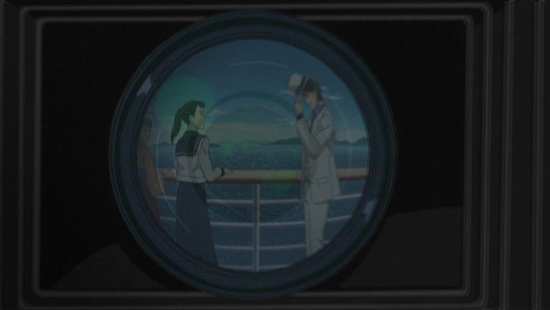


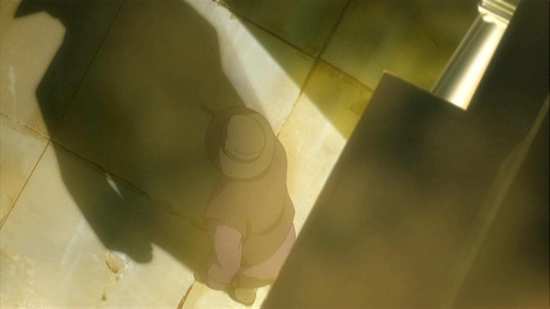


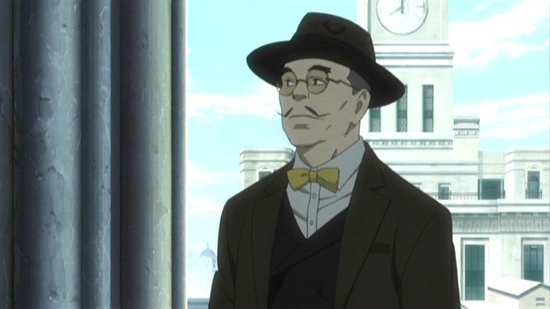


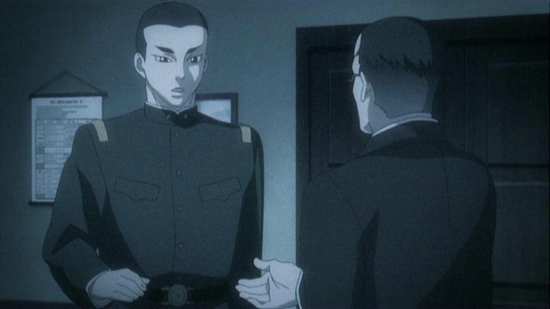

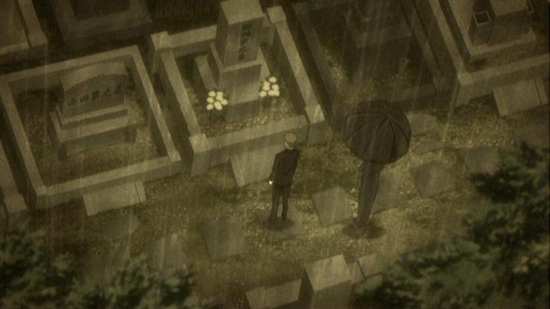


Your Opinions and Comments
Be the first to post a comment!